Through This Workshop, Participants Will Be Able To:
Through this workshop, participants will be able to:
Identify locally-important climate change impacts, challenges, and opportunities
Develop specific actions to adapt forests to changing conditions
Use the Adaptation Workbook to create their own “climate-informed” projects
Better communicate with stakeholders about key climate change impacts, challenges, and opportunities
Access post-training support from NIACS staff during project planning and implementation
DATES Six-week distance learning course held the weeks of January 18 through February 22, 2016 REGIONS Northwoods and New England
REGISTER ONLINE
http://goo.gl/forms/reGFz1r6xE
There is no registration fee thanks to support from the US Forest Service and USDA Northern Forests Climate Hub.
More Posts from Dotmpotter and Others


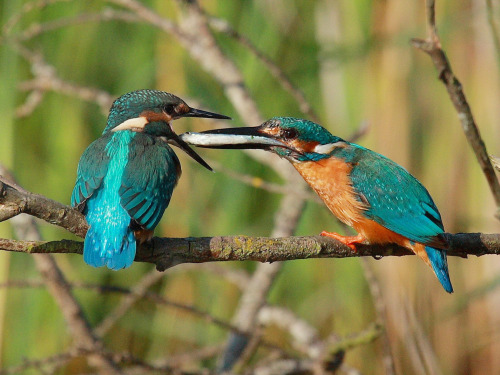
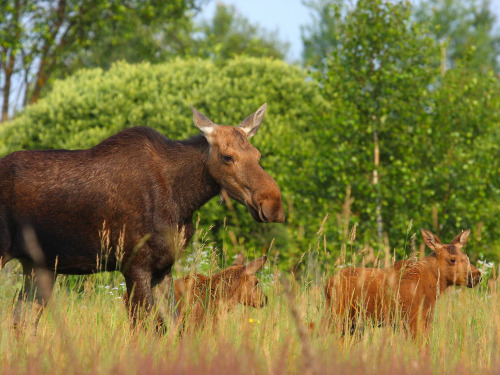
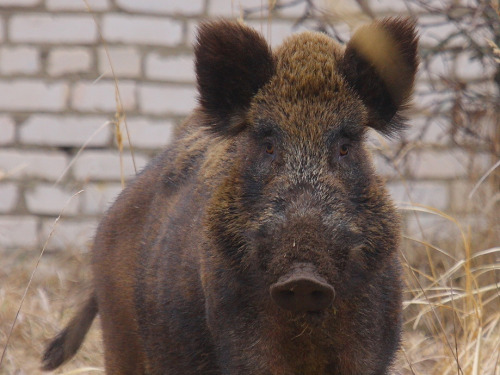
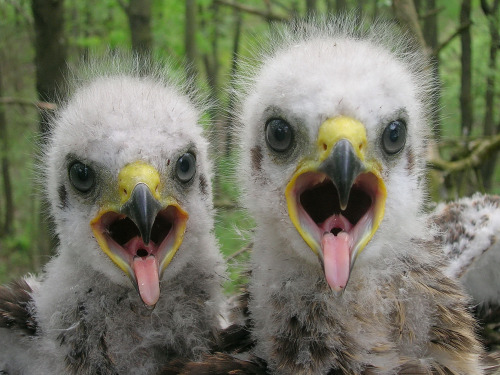
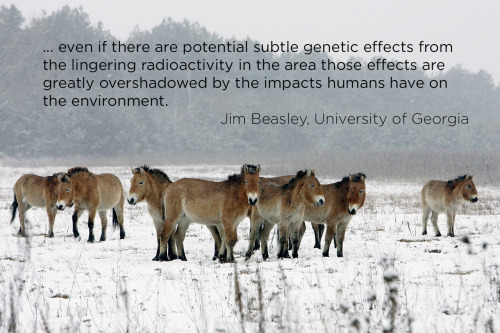
On April 26, 1986, a power surge caused an explosion at the Chernobyl Nuclear Power Plant near Pripyat, Ukraine. A large quantity of radioactive material was released.
On May 2, 1986, the Soviet government established a “Zone of Alienation” or “Exclusion Zone” around Chernobyl – a thousand square miles of “radioactive wasteland.” All humans were evacuated. The town of Pripyat was completely abandoned.
But the animals didn’t leave. And a new study, published this month in Current Biology, suggests they are doing fine. “None of our three hypotheses postulating radiation damage to large mammal populations at Chernobyl were supported by the empirical evidence,” says Jim Beasley, one of the researchers.
In fact, some of the populations have grown. These photos (mostly taken by Valeriy Yurko) come from the Belarusian side of the Exclusion Zone, and area called the Polessye State Radioecological Reserve. Kingfisher, elk, boar, baby spotted eagles, wild ponies, moose, rabbits, and wolves all make their home in the park. In some ways, human presence is worse for wildlife than a nuclear disaster.
Image credits:
1986 Chernobyl - ZUFAROV/AFP/Getty Images
Wildlife photos - Valeriy Yurko/Polessye State Radioecological Reserve
Ponies in winter - SERGEI SUPINSKY/AFP/Getty Images
It’s estimated that the world yields 110 million tons of citrus fruits annually, with oranges accounting for more than half of that production volume. Given that not every part of the fruit is put to use, that’s a lot of waste. But researchers at Flinders University in Adelaide, Australia, have made a breakthrough that will allow humans to use citrus waste to suck the highly poisonous metal mercury out of land and sea.
Orange Peel Waste Can Help Remove Mercury Pollution From Oceans | GOOD

‘Wired Microbes’ Act as Power Plants, Converting Sewage to Energy





Green Lake (Grüner See) in Styria, Austria, is an amazing place. For half of the year, it’s an underwater village with fish swimming through the branches of trees, a floor covered in grass, benches and bridges.
For the other half, it is over ground. In the frozen winter months the area is almost completely dry and is a favorite site for hikers. As the temperature begins to rise in spring, the ice and snow on the mountaintops begins to melt and runs down into the basin of land below. The waters are at their highest in June when it becomes a mecca for divers keen to explore the rare phenomenon.

The UK has become the first country in the world to be placed under investigation by the United Nations for violating the human rights of people with disabilities amid fears that thousands may have died as a consequence of controversial welfare reforms and austerity-driven cuts to benefits and care budgets.
UN inspectors are expected to arrive in the country within days to begin collecting evidence to determine whether the British government has committed “systematic and grave violations” of the Convention on the Rights of Persons with Disabilities.

We often take our surroundings for granted. This is an excellent piece that outlines some of the problems and proposes a cool way to keep our forests going.
Setting up any business is a challenge but in Ethiopia those range from daily operating headaches such as on-off internet to even more fundamental business challenges
“The internet goes out a couple of times a week — when that happens, there is not much we can do but rely on phone lines to take orders,” said Feleg Tsegaye, manager of Deliver Addis.
But he also believes the Horn of Africa nation — the second most populous on the continent — offers enormous opportunities.
Tsegaye was born and brought up in the US but moved to Ethiopia, the homeland of his parents, hoping to tap into a still largely untapped but swiftly growing market he believes is one of the most promising on the continent.
“The IT sector is still in its infancy — typically in these markets there is a way to transfer money very quickly and very easily, but here that doesn’t exist quite yet,” he added.
“Once you have a way for entrepreneurs to make money through technology, I think you are going to see that change very quickly.”
With a growth rate of nearly 10 per cent a year over the past decade, according to the World Bank, Ethiopia has attracted entrepreneurs eager to take their cut of a market with over 94 million potential consumers.
The Ethiopian capital Addis Ababa now has three “start-up incubators”, some supported by foreign investors, to help Ethiopian entrepreneurs launch their own business.

What´s new about the new science of cities?
Apple yanks drone-strike-tracking app from App Store

The app, Metadata+, was created by Josh Begley, research editor for The Intercept; Begley changed its name from Drones+ after it was rejected as “objectionable” by Apple five times.
At the time, an Apple employee told Begley that the app would never be approved if it focused on US drone strikes, but would have a chance if he “broadened his topic” because “there are certain concepts that we decide not to move forward with, and this is one.”
Metadata+ never the word “drone” – this may be how it snuck past the Apple censorship board. But seven months later, Apple has unceremoniously yanked it.
Apple: a giant corporation that gets to decide which journalism you’re allowed to access with apps on your device, and whose lawyersrepeatedly told the US government that changing this situation should be a felony punishable by five years in prison and a $500,000 fine.
Ecosystems work great – they just fail miserably. The important part of a benevolent dictatorship isn’t the “benevolent” – it’s the “dictatorship.”
Read the rest
-
 dotmpotter reblogged this · 9 years ago
dotmpotter reblogged this · 9 years ago -
 elbaa reblogged this · 9 years ago
elbaa reblogged this · 9 years ago -
 lauraelizabethnw liked this · 9 years ago
lauraelizabethnw liked this · 9 years ago -
 bois-noise liked this · 9 years ago
bois-noise liked this · 9 years ago -
 hellonerdyyouthfan liked this · 9 years ago
hellonerdyyouthfan liked this · 9 years ago -
 ladycrankyasshole reblogged this · 9 years ago
ladycrankyasshole reblogged this · 9 years ago -
 ladycrankyasshole liked this · 9 years ago
ladycrankyasshole liked this · 9 years ago -
 realstrange13 liked this · 9 years ago
realstrange13 liked this · 9 years ago -
 kirilohikaarme liked this · 9 years ago
kirilohikaarme liked this · 9 years ago -
 miamalia liked this · 9 years ago
miamalia liked this · 9 years ago -
 eastcoastmusicscene liked this · 9 years ago
eastcoastmusicscene liked this · 9 years ago -
 cherviey liked this · 9 years ago
cherviey liked this · 9 years ago -
 bandit1a reblogged this · 9 years ago
bandit1a reblogged this · 9 years ago -
 bandit1a liked this · 9 years ago
bandit1a liked this · 9 years ago -
 elbaa liked this · 9 years ago
elbaa liked this · 9 years ago -
 angryvegan reblogged this · 9 years ago
angryvegan reblogged this · 9 years ago -
 highschoolyards liked this · 9 years ago
highschoolyards liked this · 9 years ago -
 bobbycaputo liked this · 9 years ago
bobbycaputo liked this · 9 years ago


